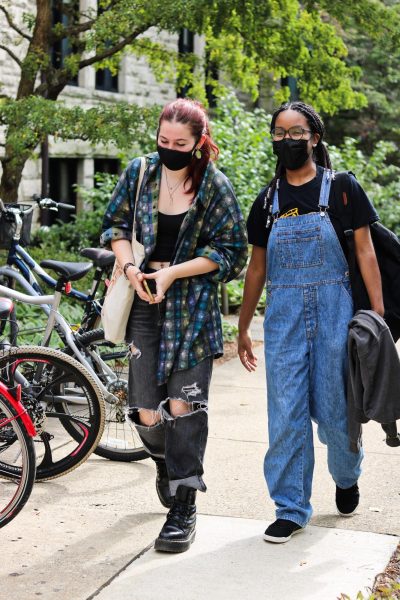Oberlin Should Add Optional Third Term to Academic Year
Like some other small liberal arts schools, Oberlin follows a semester system during which most students take two sets of classes in the fall and spring with a separate Winter Term, a time for students to delve into an intensive project for four weeks in between. What if we also added a third academic term, an additional session in the summer? Students would still take at least two sets of courses a year, but maybe not consecutively: fall and summer for instance, with Winter Term and spring being more flexible or time off. In this scenario, Winter Term projects could be extended to cover more comprehensive or complex endeavors. Or, it could simply be used as personal time off-campus to rest and relax for the upcoming semester.
Simon Fraser University operates on a three semester system: fall, spring, and summer (there, it’s considered a trimester schedule). Completion of two semesters is equivalent to completion of a full academic year. The third semester is made available for scheduling flexibility. Students won’t have to compete with peers for summer jobs if they take classes during the summer, and year-round classes would also eradicate the hassle of taking separate community college classes for students who wish to advance their studies during what is normally a break.
I applied to a local community college near my home city this summer. However, after my acceptance, I found that I lacked easy and reliable transportation. Summer classes also start immediately after the end of Oberlin’s spring semester, meaning that as I moved out of my dorm and figure out storage space, I would also need to be preparing for my first courses of the next semester. Plus, I would have to apply to get credit from Oberlin for classes taken at a different institution. Logistically, the process was more effort than I thought it was worth. If, however, three semesters were offered at Oberlin, I would seriously consider taking all three to move more quickly through my studies and graduate earlier.
Plus, amidst the ongoing pandemic, if I were to contract COVID-19 and need to isolate, I would not want my absence from class to affect my attendance grades. While some of my classes have offered virtual accessibility, others have required students to show up in person or be marked absent. COVID or not, that attendance grade goes down if you can’t make it to class. Thus, an extra semester is also useful for students who want to keep up with their studies but are prevented from doing so by extenuating circumstances. Such a benefit is acknowledged by Louis Mathier, director of studies for the online branch of the Université du Québec. Here, students actually sought out a summer term option. It’s also drawn French and Swiss international students to the university because the summer session aligns conveniently with their schedules. This is good for the university because more students means a greater influx of tuition money.
At Oberlin, a summer semester could be similarly beneficial in bringing more students to the school, as well as in de-densifying the campus. Considering the hectic housing situation for those coming to campus during the 2021–22 school year and Oberlin’s small campus size, there just doesn’t seem to be enough living space to accommodate everyone. With Oberlin’s consecutive two semester system followed by a summer break, most students are on campus at the same time, so it can get a little bit cramped. A third semester option would free up available space and ease the current complicated housing process. Plus, if a transition to an additional academic term is done meticulously, it may also allow Oberlin to admit more students. Students could be admitted to various combinations of two out of the three available semesters, and thus, the total number of students admitted increased.
For those concerned about increasing the acceptance rate and potentially decreasing the prestige of the college, Oberlin’s admissions rate is currently situated around 37 percent. Looking at the 2021 Arts and Sciences applicant pool profile, increasing the number of students admitted by 400 would only increase the acceptance rate by roughly 4 percentage points. When both values are rounded to the nearest tenth percentile, both hover at 40 percent. The overall exclusivity of Oberlin, therefore, would change very little.
A third academic semester offers more options both to students and to the College by providing academic opportunities to people of various schedules and circumstances, potentially mitigating housing complications and allowing more students to attend, thus allowing Oberlin to profit economically. Since a three semester system is more attuned and responsive to the needs of students and friendlier to the Oberlin coffers, what’s not to love?




